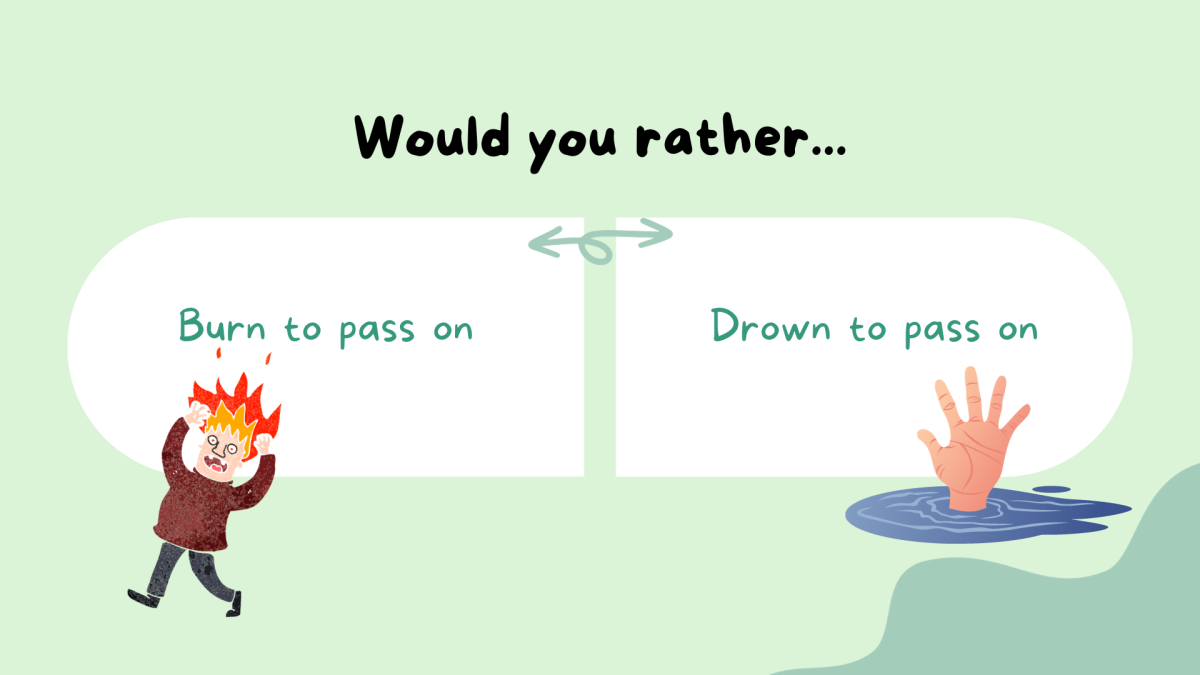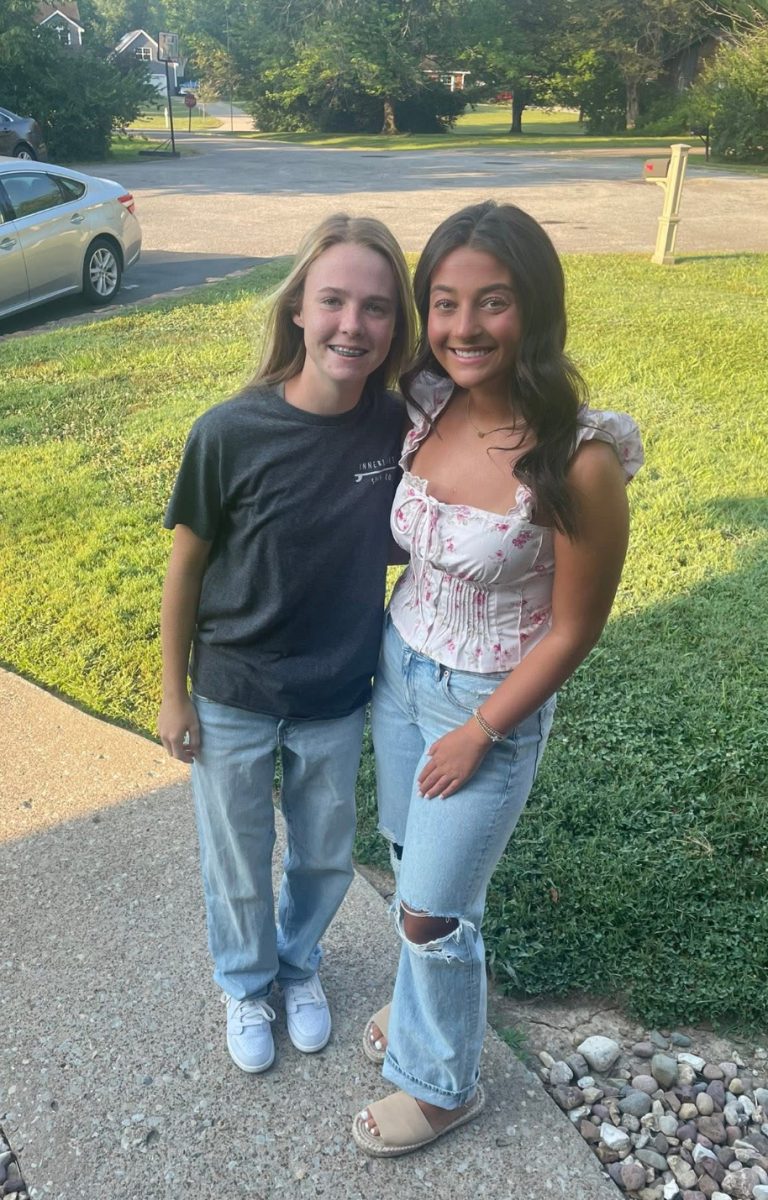Currently, many students and teachers are playing the global phenomenon of Would You Rather; while some of these students and teachers may be playing during school, at home, and in restaurants, many have not faced the game’s true challenge, and that is, would you rather burn or drown as the chance of passing on?
When someone says burn or drown as your only option for dying, many people pause and do not come up with an answer for a long time. This is because both ways are a horrible death, but they are two very essay topics to argue over which one is worse. However, which would the majority of the people would say, burn to death or drown to death?
A survey was sent to CHS students and staff, and many people had different reasons for preferring the other over a certain one. 70/100 votes from students and staff voted that the better way to pass on would be to be able to drown rather than burn. Junior Max Richardson said he would rather drown, “Although Drowning is slow and painful, I feel like burning is one of the worst pains someone can experience.” As many can see, there is already a debate on whether or not burning or drowning is worse.
On the other hand, junior Abigail Ballard says, “Burn alive because when drowning, it causes the brain to make it seem like your brain is exploding due to water feeling up your brain, but when you burn, it does the opposite and releases the pressure of feeling like it will explode.”
Although only one person could not make their final answer, and that person was Mr. Dunn, “Do not get me wrong, both of these are indeed horrible ways to pass on, and if I could, I would rather not choose any of these. For example, when drowning, your lungs fill up with air, so it hurts a lot, and when burning alive, the last thing you can smell is your flesh burning, and I would like to not think of that.”
Overall, most people had chosen to pass on by drowning and not so much by passing on from being burned alive, and this was indeed a very complicated question to answer, while some had spent a lot of time thinking about their answer.









